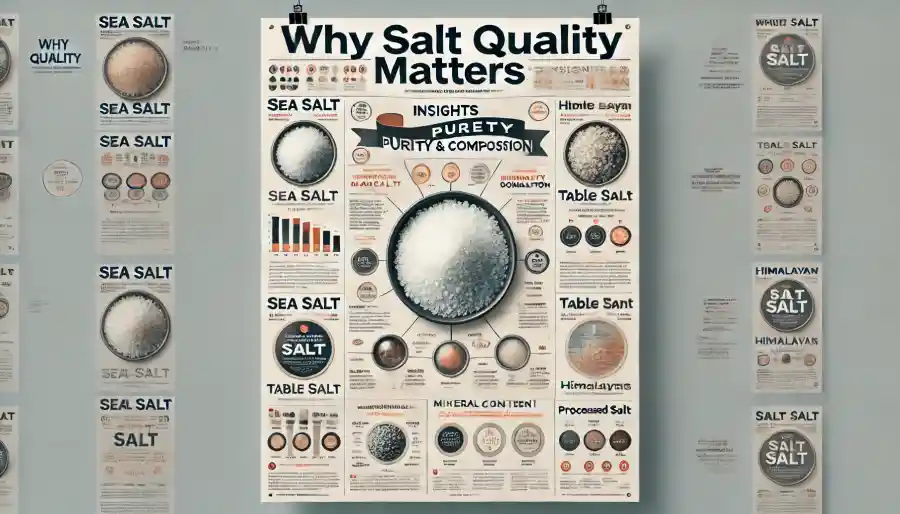Why Salt Quality Matters: Insights into Purity and Composition
Salt, a vital ingredient in civilizations, has been used for thousands of years as a seasoning, preservative, and currency. However, salt’s quality, purity, and composition can significantly affect its effectiveness, taste, and health benefits. High-quality salt is essential for maintaining optimal health and enhancing food flavors. Low-quality salt often undergoes heavy processing, stripping it of beneficial minerals and introducing harmful chemicals. Understanding these differences can help make better choices for diet and overall well-being. Salt distributors play a crucial role in ensuring consumers access high-quality options. Selecting high-quality, pure salt is essential for maintaining optimal health and enhancing food flavors. This article will discuss salt’s composition, benefits, identification, and environmental impact.
Composition of Salt
Salt, scientifically known as sodium chloride, is a mineral that naturally occurs in various environments, from the oceans to underground mines. The main difference between different types of salt lies in their composition, including the presence of trace minerals and the absence or presence of additives. These trace minerals not only enhance the flavor profile but may also offer additional health benefits.
On the other hand, table salt is heavily refined and often stripped of these beneficial trace minerals. In many cases, it also contains additives like iodine and anti-caking agents that prevent clumping but may have other health implications. Sea salt, another popular type, is less processed than table salt and retains more natural minerals. However, ensuring that the sea salt you choose is sourced from clean waters is essential to avoid contamination with pollutants and microplastics.
Benefits of Pure Salt
Pure salt, free of additives and chemicals, offers numerous health benefits that processed salts do not. Research has shown that high-quality salt can aid in proper hydration by helping to balance your body’s fluid levels. This is crucial for maintaining electrolyte balance, muscle function, nerve impulses, and hydration.
Additionally, by encouraging the formation of stomach acid and digestive enzymes, pure salt may help improve digestive health. This may enhance the body’s ability to absorb nutrients and process food efficiently. According to research, some aspects of pure sea salt may help balance hormones and improve sleep patterns. Pure salt is a safer alternative for long-term use because it doesn’t contain any dangerous additions, which lowers the chance of health problems associated with toxin exposure.
How to Identify Quality Salt
One of the best ways to ensure the salt you consume is high quality is to check the labeling for additives or anti-caking agents. High-quality salts often list their mineral content and origin, giving you insight into your consumption. Reputable businesses will also provide comprehensive details on their sourcing and processing practices so you can make an even better decision. To ensure you select the best choice, websites such as the Food and Drug Administration provide instructions on what to look for in food labeling.
Furthermore, it’s worth researching the company behind the salt to ensure they follow ethical and sustainable practices. Look for certifications indicating the salt has been harvested in environmentally friendly ways. Transparency in sourcing and production methods is often a good indicator of a company’s commitment to quality. You can also rely on consumer reviews and expert recommendations to guide your choices.
Environmental Impact
Choosing high-quality, ethically sourced salt benefits your health and the environment. Many commercial salt production methods can harm ecosystems, but responsibly sourced salt often comes from sustainable practices. For example, traditional sea salt production involves solar evaporation, which is less invasive and more eco-friendly. This ensures that the natural habitats from which the salt is harvested remain intact, promoting environmental conservation.
You support practices that minimize environmental degradation by opting for sustainably harvested salts. This can contribute to preserving marine ecosystems and reducing the carbon footprint associated with salt production. Promoting global ecological health depends increasingly on consumers choosing sustainable products as they become more conscious of their environmental impact.

